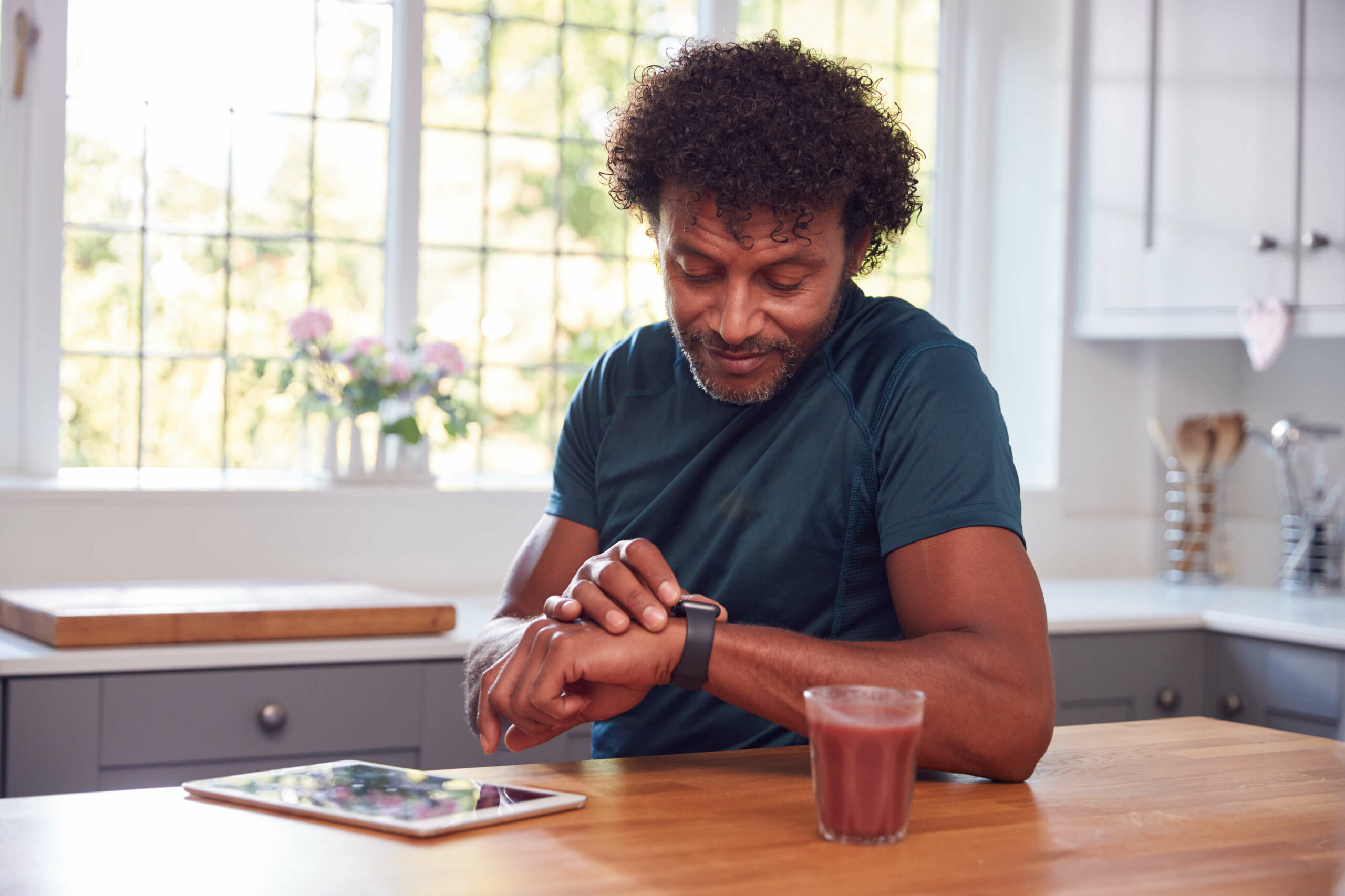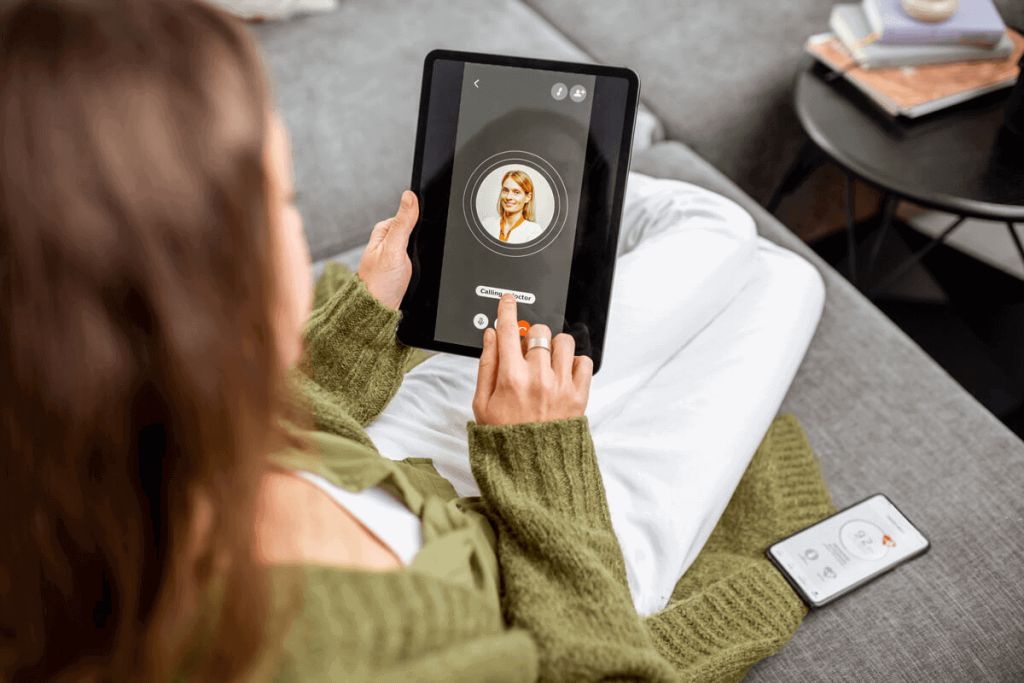Did you know that 85% of Americans own a smartphone (12) and nearly 60% of smartphone owners use them for tracking health behaviors? (3) With widespread access to smartphones and the growing popularity of technologies used to support healthy behavioral change, the use of digital interventions such as mobile apps and wearable devices for encouraging behavior change has become a topic of interest in recent years. Research demonstrates how technologies such as computers, desktop apps, smartphones (mobile apps and SMS (mHealth)), the internet, email, wearable sensors, games, social media, and patient portals can provide techniques to influence behavioral change. (18)
How can you harness the power of these technologies to support your patients on their health journeys? Keep reading to learn more about how mobile apps and other technologies can promote positive behavioral change, and view a list of some of the most promising behavior change apps according to recent research.

Did you know? 60% of the global population has access to the internet, 92% of which connect to the internet through their mobile device. (15)
How can mobile health apps promote behavioral change?
Research highlights the potential benefits of using digital interventions such as mobile health apps for promoting behavioral change. According to a 2016 systematic review, digital interventions have been shown to improve multiple facets of health such as diet, physical activity, obesity, tobacco, and alcohol use. These benefits are primarily observed in the first six months; however, small positive effects may last for up to one year. (1)(24) Outlined below are some examples of how apps can promote behavioral change.
1. Diet and physical activity
Mobile apps, wearable devices, and other digital interventions are popular in the physical activity and nutrition space. (14)(18) For example, web-based interventions increased the average daily time spent engaging in moderate to vigorous physical activity by 13.4 minutes and steps by 2,185. (8) In older adults, moderate to vigorous physical activity was increased by 52 minutes per week and sedentary time was reduced by 58 minutes per day according to one study. (17) Research also demonstrates that digital interventions reduced sedentary time by approximately 32 to 41 minutes per day, though effects seem to diminish over time (greater than six months). (7)(16)
Mobile apps have demonstrated small effects on improving nutrition behaviors and nutrition-related health outcomes such as obesity measures, blood pressure, and blood lipids in adults. (21) Wearable devices have also shown effectiveness in improving physical activity levels. Individuals who own wearable technologies self-reported increased moderate physical activity, walking, and total physical activity per week compared to individuals who do not own wearable devices. (25)
Did you know? As of 2019, 21% of Americans reported using a wearable device such as a pedometer or fitness watch. (22)

Most wearable devices have mobile apps that allow users to track their activity and progress.
The top four behavior change techniques most frequently used in mobile applications for improving healthy eating behaviors in adult populations included “feedback on behavior,” “instruction on how to perform the behavior,” “goal setting (behavior),” and “review of behavior goals.” (21) Other successful short-term behavioral change techniques for improving diet and physical activity include “social support (unspecified)” and “adding objects to the environment” (e.g., wearable trackers). (20)
2. Smoking cessation
Digital interventions have been shown to increase the odds of smoking cessation by 29% in the short term (less than six months) and 19% in the long term (greater than six months) in the general population. (10) According to one meta-analysis, technologies offering the greatest likelihood of success included strategies such as “problem solving,” “pros and cons,” “action planning,” “social support (unspecified),” “pharmacological support,” “goal setting (behavior),” and “information about health consequences.” (10)
3. Alcohol consumption
Digital interventions also have been shown to reduce alcohol consumption and improve drinking behaviors. In a meta-analysis of nine randomized controlled trials, adult drinking behaviors slightly reduced for six to nine months post intervention. (13) In college students, digital interventions may also reduce drinking quantities and frequencies as well as other alcohol-related problems with small effects for up to 13 weeks post intervention, but an effect might only be sustained for a reduced alcohol quantity after six months. (5)(6)
4. Treatment adherence
Treatment adherence is essential for achieving desired health outcomes, and research demonstrates that technology may help patients stay on track with their prescribed treatment plans. (2) Specifically, mobile apps or text messages have been shown to increase the likelihood of improving medication adherence and may increase absolute adherence, (4)(19) particularly if reminders are set as part of a schedule (as opposed to in response to a trigger that detects non-adherence over a given timeframe) and when patients can send text messages in reply to the reminder. (2)(23)
Best behavior change apps
There are various popular apps that help promote physical activity, track nutrition, promote mindfulness, and support smoking cessation or alcohol consumption reduction. A 2019 study analyzed a wide range of health apps using two scales: the App Behavior Change Scale (ABACUS), which measures the potential of the mobile phone app to encourage behavior change, and the Mobile App Rating Scale (MARS), which measures functionality.
Outlined below are some of the top-rated apps according to this study. (11)
Smoking cessation
- Quit Genius (App store, Google Play)
- Smoke Free (App store, Google Play)
Alcohol consumption
- Daybreak (App store, Google Play)
- Drinks Meter (App store, Google Play)
Mindfulness and mental health apps
- HeadGear (App store, Google Play)
- Headspace: Guided Meditation (App store, Google Play)
- Simple Habit: Meditation (App store, Google Play)
- Unwinding Anxiety (App store, Google Play)
Physical activity
- Asana Rebel: Yoga and Fitness (App store, Google Play)
- CARROT Fit (App store)
- Fitbit (App store, Google Play)
- Garmin Connect (App store, Google Play)
- Home Workout – No Equipments (App store, Google Play)
- JEFIT Strength Training Guide (App store, Google Play)
- Map My Fitness by Under Armour (App store, Google Play)
- Map My Walk by Under Armour (App store, Google Play)
- Workout Trainer: fitness coach (App store, Google Play)
Nutrition and hydration
- Beyou – Health Coach & Recipes (App store)
- Lifesum: Food & Macro Tracker (App store, Google Play)
- Drink Water Aquarium (App store, Google Play)
- MyNetDiary PRO Calorie Counter (App store, Google Play)
- MyFitnessPal (App store, Google Play)
The bottom line
Mobile apps and other technologies can be effective tools for promoting behavioral change. Engage your patients by encouraging them to try digital tools like the the behavior change apps discussed in this article to help them stay on track with their goals and to help them reach their desired health outcomes.

